Find Help
More Items From Ergsy search
-
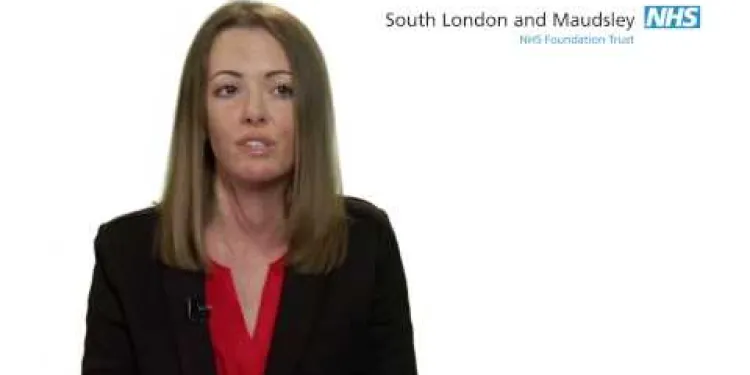
OCD
Relevance: 100%
-
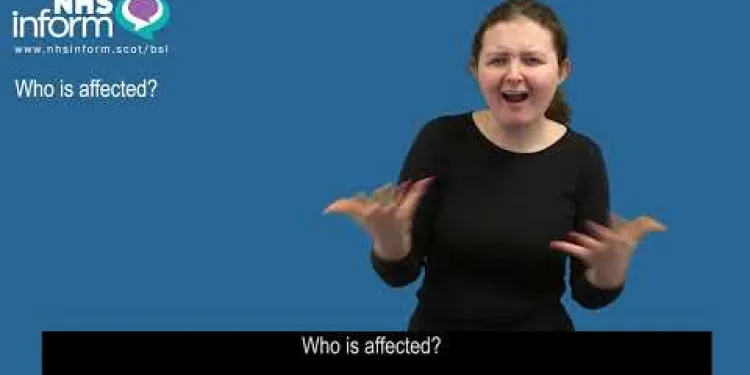
BSL - Introduction to obsessive compulsive disorder (OCD)
Relevance: 82%
-
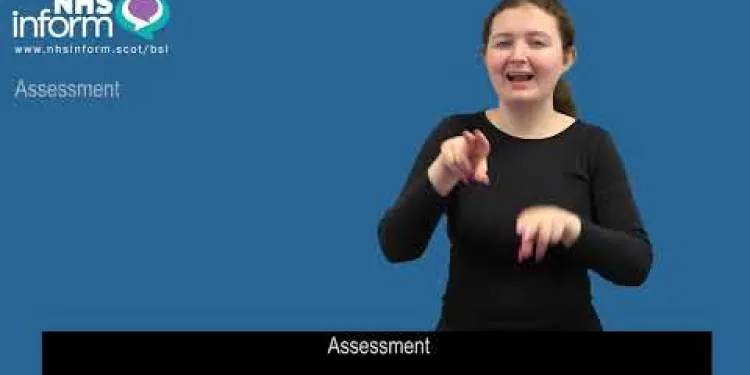
BSL - Diagnosis of obsessive compulsive disorder (OCD)
Relevance: 81%
-
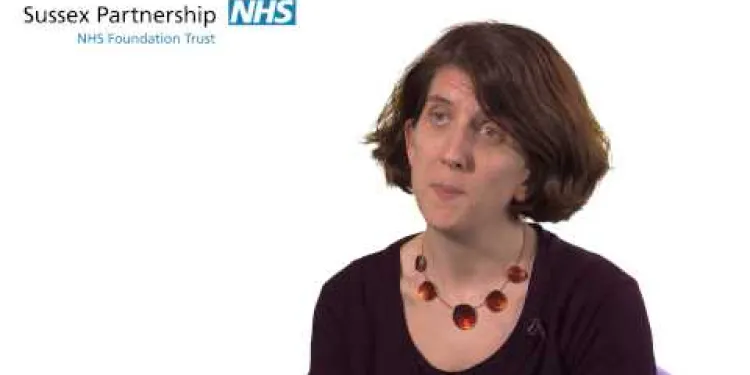
Clara Strauss: What is Obsessive Compulsive Disorder OCD
Relevance: 79%
-
Can eating disorders occur with other mental health conditions?
Relevance: 23%
-
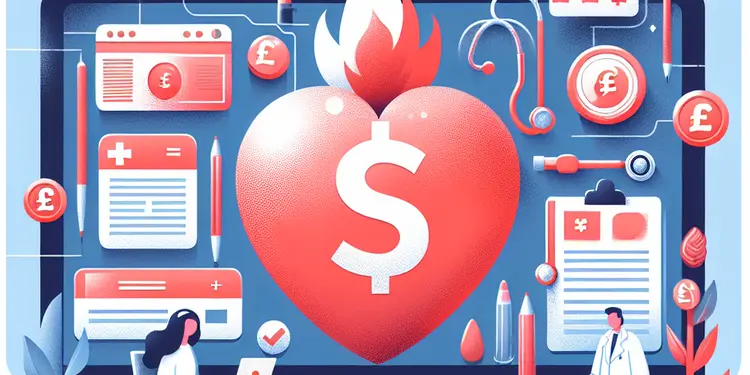
What is health-related anxiety?
Relevance: 23%
-
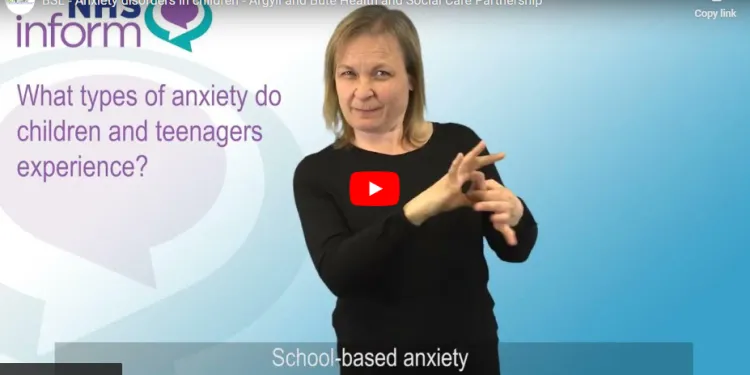
What type of anxiety do children and teenagers experience?
Relevance: 19%
-
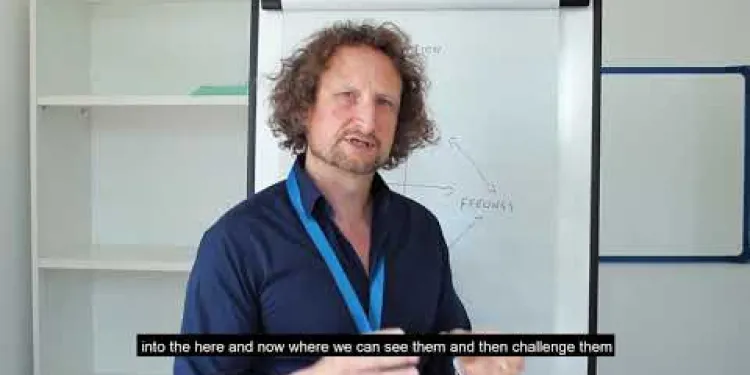
What is CBT
Relevance: 12%
-
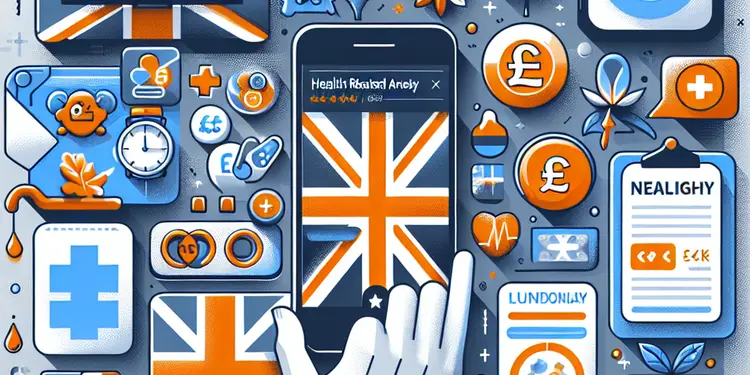
What is health related anxiety?
Relevance: 11%
-
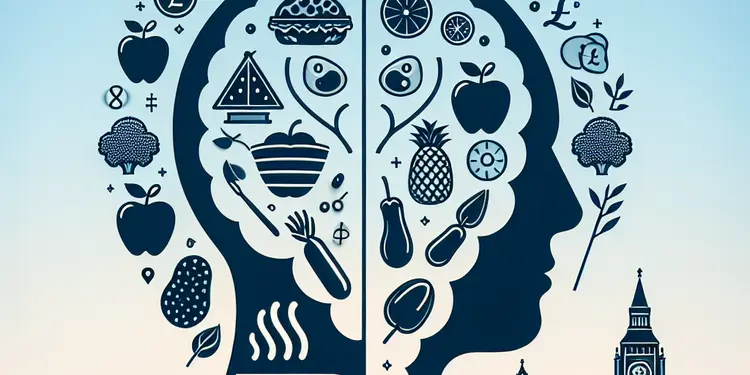
How do eating disorders affect mental health?
Relevance: 11%
-
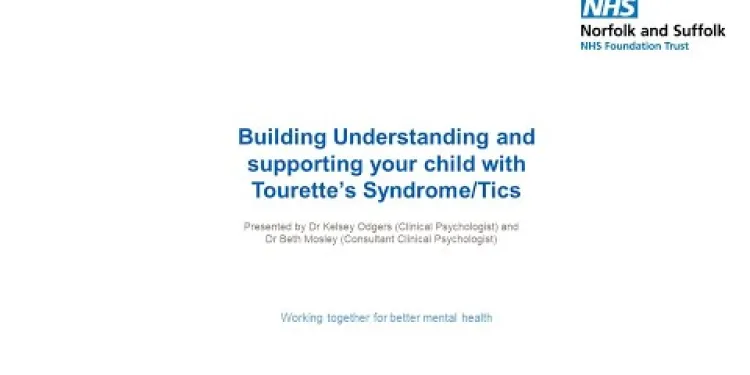
Building Understanding and Supporting Your Child with Tourette’s Syndrome/Tics
Relevance: 8%
-
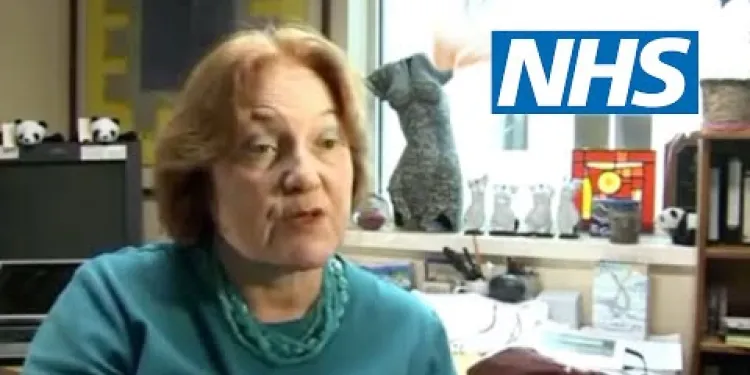
Anorexia nervosa | NHS
Relevance: 6%
-

What can cause autism, if not paracetamol?
Relevance: 5%
-
What are common symptoms of eating disorders?
Relevance: 5%
-

What role does the internet play in health-related anxiety?
Relevance: 5%
-
What is an Eating Disorder?
Relevance: 5%
Understanding Obsessive-Compulsive Disorder (OCD)
What is OCD?
Obsessive-Compulsive Disorder (OCD) is a mental health condition characterized by unwanted, persistent thoughts (obsessions) and repetitive behaviors (compulsions) that an individual feels driven to perform. These obsessions and compulsions can interfere significantly with daily activities and social interactions.Common Symptoms
OCD symptoms can vary, but commonly include repetitive behaviors like handwashing, checking, or arranging items in a specific order. Obsessive thoughts might focus on fears of contamination, harm, or the need for symmetry. Compulsions are performed to alleviate the distress caused by these obsessive thoughts, but the relief is usually temporary.Prevalence in the United Kingdom
OCD affects about 1-2% of the population in the UK, equating to hundreds of thousands of people. It can occur at any age, but it often starts in childhood, adolescence, or early adulthood. Both men and women are equally affected.Causes and Risk Factors
The exact cause of OCD is not fully understood, but several factors may contribute, including genetics, brain structure and functioning, and environmental influences. Stressful life events are also known to trigger or exacerbate symptoms in some individuals.Treatment Options
Effective treatments for OCD are available and typically include a combination of psychological therapy and medication. Cognitive Behavioral Therapy (CBT), particularly Exposure and Response Prevention (ERP), is highly effective. Antidepressants, such as selective serotonin reuptake inhibitors (SSRIs), can also help manage symptoms.Getting Help in the UK
If you or someone you know is experiencing OCD symptoms, it is important to seek help. General practitioners (GPs) can provide initial assessments and referrals to mental health specialists. Organizations like OCD Action and OCD-UK offer valuable resources and support services.Conclusion
Understanding OCD is crucial in recognizing its impact on individuals' lives and seeking appropriate treatment. With the right support and interventions, people with OCD can lead fulfilling lives. Don't hesitate to reach out for help if you or a loved one is struggling with obsessive-compulsive symptoms.Understanding Obsessive-Compulsive Disorder (OCD)
What is OCD?
Obsessive-Compulsive Disorder, or OCD, is a mental health problem. It makes people have thoughts they don’t want (obsessions) and do things over and over (compulsions). These thoughts and actions can make everyday life hard.Common Symptoms
People with OCD might wash their hands a lot, check things again and again, or arrange things in a special way. They might be scared of germs, worry about bad things happening, or want things to be just right. Doing these actions can make them feel better, but only for a little while.Prevalence in the United Kingdom
OCD affects about 1-2 out of every 100 people in the UK. That means many people have it. OCD can start when you are a child, a teenager, or a young adult. It affects both boys and girls, men and women, equally.Causes and Risk Factors
We don’t know exactly why people get OCD. It might be because of family history, how the brain works, or things happening around them. Stressful events can also make OCD worse or start it.Treatment Options
There are good treatments for OCD. People can talk to therapists and take medicine. One helpful therapy is called CBT, which stands for Cognitive Behavioral Therapy. A special kind of CBT called ERP (Exposure and Response Prevention) works well. Some people take medicine called SSRIs to feel better.Getting Help in the UK
If you think you or someone you know has OCD, it is important to talk to a doctor. Doctors called GPs can help you find the right treatment. Groups like OCD Action and OCD-UK have useful information and support.Conclusion
Knowing about OCD helps people understand how it affects those who have it. With the right help, people with OCD can live happy lives. If you or someone you know needs help, don’t wait to ask for it.Frequently Asked Questions
What is Obsessive-Compulsive Disorder (OCD)?
Obsessive-Compulsive Disorder (OCD) is a mental health condition where individuals experience frequent, unwanted thoughts (obsessions) and engage in repetitive behaviours (compulsions) to try to alleviate the distress caused by these thoughts.
What are common symptoms of OCD?
Common symptoms of OCD include persistent thoughts about contamination, harm, or perfectionism, as well as compulsive behaviours like excessive cleaning, checking, counting, or hoarding.
How is OCD diagnosed?
OCD is diagnosed by a healthcare professional through clinical interviews and assessments, which often involve discussing the nature, frequency, and impact of the obsessions and compulsions on daily life.
What causes OCD?
The exact cause of OCD is unknown, but it is believed to be a combination of genetic, neurological, behavioural, cognitive, and environmental factors.
Can OCD be treated?
Yes, OCD can be treated effectively using a combination of therapies like Cognitive Behavioural Therapy (CBT), particularly Exposure and Response Prevention (ERP), and medications such as selective serotonin reuptake inhibitors (SSRIs).
What is Cognitive Behavioural Therapy (CBT)?
Cognitive Behavioural Therapy (CBT) is a type of psychotherapy that helps individuals challenge and change unhelpful thought patterns and behaviours. It is considered an effective treatment for OCD.
What is Exposure and Response Prevention (ERP)?
Exposure and Response Prevention (ERP) is a form of Cognitive Behavioural Therapy (CBT) specifically designed for OCD. It involves gradually exposing individuals to their fears (obsessions) without allowing them to engage in their usual compulsive behaviours.
Are there support groups for OCD in the UK?
Yes, there are several support groups and organisations in the UK, such as OCD-UK and OCD Action, that provide support, information, and resources for individuals with OCD and their families.
Can children have OCD?
Yes, children can develop OCD. It often starts in childhood or adolescence and can impact their daily activities, school performance, and social interactions.
Is OCD related to anxiety disorders?
OCD is considered an anxiety disorder because the obsessions often cause significant anxiety, and the compulsive behaviours are triggered as an attempt to reduce this anxiety.
Can stress make OCD worse?
Yes, stress can exacerbate OCD symptoms. Stressful life events or changes can trigger an increase in both obsessions and compulsions.
Is OCD a lifelong condition?
OCD can be a chronic condition, but with appropriate treatment, many individuals can manage their symptoms effectively and lead productive lives.
How can family and friends support someone with OCD?
Family and friends can support someone with OCD by being understanding and patient, encouraging them to seek professional help, and avoiding enabling their compulsive behaviours.
Can lifestyle changes help manage OCD?
Yes, maintaining a healthy lifestyle, such as regular exercise, a balanced diet, adequate sleep, and stress management techniques, can complement the treatment of OCD and enhance overall well-being.
Where can I find professional help for OCD in the UK?
You can find professional help for OCD through your GP, who can refer you to a mental health specialist. Additionally, organisations like the NHS, OCD-UK, and OCD Action offer resources and directories for finding qualified therapists.
What is Obsessive-Compulsive Disorder (OCD)?
OCD stands for Obsessive-Compulsive Disorder. It's when a person gets strong thoughts they can't stop. They might do the same thing over and over to feel better.
People with OCD might wash their hands a lot or check if the door is locked many times.
OCD can be hard to live with, but help is available. Talking to a doctor or therapist can help. There are also apps and tools to support people with OCD.
Obsessive-Compulsive Disorder, or OCD, is a mental health problem. People with OCD have thoughts that they can't stop thinking about. These thoughts are called obsessions. To feel better, they do certain actions over and over again. These actions are called compulsions.
What are common signs of OCD?
People with OCD might:
- Wash their hands often
- Check things a lot, like if the door is locked
- Keep things very tidy and in order
- Think the same thoughts over and over
If you need help, you can:
- Talk to a trusted adult
- Draw or write about your feelings
- Try calming exercises, like deep breathing
People with OCD might have strong thoughts about germs, danger, or being perfect. They might do things like clean a lot, check things over and over, count things, or keep too many things.
How do doctors find out if someone has OCD?
Doctors talk to the person and ask questions. They want to know about thoughts and actions that happen a lot. These thoughts and actions must cause problems in everyday life.
Doctors might use checklists to help them. They look for signs that show someone may have OCD. They might ask about things like washing hands too much or checking things often.
If you think you might have OCD, talking to a doctor can help. They will listen and understand. They can help make life better with the right support and treatments.
Sometimes, using a calendar or diary to write down feelings and actions can help. This way, you can tell the doctor exactly what you are experiencing.
A doctor or a healthcare worker can find out if someone has OCD. They do this by asking questions and talking with the person. They will ask about the thoughts that won't go away (obsessions) and things the person feels they must do (compulsions). They also want to know how these things affect the person's daily life.
What makes OCD happen?
It's good to break down information into small bits. Some tools and techniques that might help are: - **Pictures**: Looking at pictures can help you understand better. - **Calm Place**: Sit somewhere quiet when you think about this. - **Talk About It**: Discuss with someone who can help explain more.We don't know exactly what causes OCD, but it might be a mix of things like genes, brain chemistry, how people behave, how they think, and things around them.
Can OCD be treated?
Yes, OCD can be treated. Here is how:
- 1. Talk to a Doctor: A doctor can help you understand OCD.
- 2. Therapy: Talking to a therapist can make you feel better. They listen and give advice.
- 3. Medicine: Some medicines can help your brain feel better.
Remember, it is okay to ask for help. You are not alone.
Yes, people with OCD can get help that works. Doctors can use special talking therapy called CBT. Part of CBT is a method called ERP where you face what makes you worry. There are also medicines called SSRIs that can help. These treatments can make a big difference.
What is CBT?
CBT stands for Cognitive Behavioural Therapy. It is a way to help people feel better.
CBT helps people change how they think and act.
This can help with feeling sad, worried, or stressed.
People talk with a therapist who helps them learn new skills.
You can try writing feelings down or using pictures to help understand thoughts.
Cognitive Behavioural Therapy, or CBT, is a kind of talking therapy. It helps people change unhelpful thoughts and actions. CBT can help treat OCD (Obsessive-Compulsive Disorder).
What is Exposure and Response Prevention (ERP)?
Exposure and Response Prevention, or ERP, is a way to help people feel less worried about things. It works by letting people face what makes them scared in a safe way. Then, they practice not doing things that they usually do to feel better, like checking or washing a lot. This helps their brain learn that it is okay not to do those things. ERP can make people feel better over time.
Tools that can help with this are talking to a kind therapist, practicing calm breathing, and taking small steps to face fears.
Exposure and Response Prevention (ERP) is a type of talk therapy. It helps people who have OCD.
OCD stands for Obsessive-Compulsive Disorder. This means they worry about things a lot (obsessions) and then feel they have to do things to make the worry go away (compulsions).
ERP helps by letting people face their worries a little at a time. It teaches them not to do the things they usually do to make the worry go away.
Is there someone who can help with OCD in the UK?
Yes, there is help! There are groups where people with OCD meet and support each other.
What's OCD? OCD means "Obsessive-Compulsive Disorder." It makes people worried and they feel they must do certain things.
How can I find these groups?
- You can look on the internet for "OCD support groups UK."
- You can ask a doctor for help to find these groups.
Extra tips:
- Ask a friend or family member to help you search.
- Use the computer or phone to watch videos that explain OCD.
Yes, there are some places in the UK that can help if you have OCD. They are called support groups. Two good groups are OCD-UK and OCD Action. They can give you help, information, and things to read. They also help families of people with OCD.
Can kids have OCD?
Yes, kids can have OCD. It stands for Obsessive-Compulsive Disorder. It means they might have strong worries or feel like they have to do things in a certain way over and over. If a kid has OCD, there is help they can get. Talking to a doctor can be a good start.
Here are some things that can help:
- Talking to a counselor or therapist
- Playing calm music
- Writing down their feelings
- Using relaxation techniques like deep breathing
Remember, it's okay to ask for help and talk about feelings.
Yes, kids can get OCD. It can start when they are young, even before they are teenagers. It can make it hard for them to do things every day, do well in school, and play with friends.
Some helpful things for kids with OCD are:
- Talking to a doctor or a therapist.
- Trying deep breathing or relaxing exercises.
- Making a simple schedule, so they know what to do each day.
- Using a feelings chart to talk about how they feel.
Is OCD related to feeling very worried?
Yes, OCD and feeling very worried (called anxiety) are related. Both can make you feel scared and stressed.
If you find it hard to read this, you can try using pictures or videos to help understand. Talking to someone about it can also help.
OCD is a type of anxiety problem. It makes people feel very worried. They have strong thoughts (called obsessions) that make them anxious. To feel better, they do certain things over and over (called compulsions).
Does stress make OCD worse?
OCD means Obsessive Compulsive Disorder. It is when people have thoughts they cannot stop and feel they need to do things over and over.
Yes, stress can make OCD worse. Stress is when you feel worried or upset about something.
If you have OCD and you feel stressed, your OCD might feel stronger.
Things that can help with stress:
- Talk to someone you trust about how you feel.
- Try to relax by taking deep breaths.
- Do something fun like drawing or playing a game.
If you need more help, talk to a doctor or a therapist. They can give you more ideas to help you feel better.
Yes, stress can make OCD symptoms worse. When life gets stressful or things change, it can make the worrying thoughts and strong urges of OCD happen more.
Does OCD last forever?
OCD is a condition that can last a long time. But, with the right help, many people can feel better and live happy lives.
How can family and friends help someone with OCD?
Family and friends can help someone with OCD by doing these things:
Listen and Talk: Listen to them when they talk. Be kind and patient.
Learn About OCD: Read books or watch videos about OCD. This helps you understand what they are going through.
Be Supportive: Tell them you are there to help. Encourage them when they are having a hard time.
Encourage Treatment: Tell them it is good to talk to a doctor or therapist. Treatment can help them feel better.
Practice Patience: Remember, change takes time. Be patient and support them as they work on getting better.
Tools that might help are:
- Books and videos for learning
- Apps that help with staying calm
- Relaxing activities like drawing or listening to music
Family and friends can help someone with OCD. They should try to be kind and patient. They can say, "It's good to talk to a doctor about OCD." They should not help the person with their OCD habits.
Can changing how you live help with OCD?
OCD means you have thoughts and habits you cannot stop doing. Here are some ways that might help:
- Exercise: Moving your body can help you feel better.
- Healthy Eating: Eating good food helps your brain work well.
- Sleep: Getting enough rest is important for feeling good.
- Relaxation: Take time to relax. Try deep breathing or listening to calm music.
- Talk to Someone: Speaking with a friend or family can help. You can also talk to a therapist.
These changes can make you feel better, but it's also okay to ask for help from a doctor or therapist.
Yes, staying healthy can help with OCD. You can do this by:
- exercising regularly
- eating a good mix of foods
- getting enough sleep
- using ways to feel less stressed
These things can help you feel better.
Where can I find help for OCD in the UK?
Do you want to find help with OCD?
Here is how you can find help:
- Ask your doctor to help you.
- You can talk to a therapist. They will understand OCD.
- Look for local groups where you live. They talk about OCD.
- Visit a website for OCD support.
- You can call a helpline to talk about OCD.
These places can help you feel better.
You can get help for OCD (which means Obsessive-Compulsive Disorder) by talking to your GP (family doctor). They can help you find a specialist who understands mental health. You can also check places like the NHS, OCD-UK, and OCD Action. They have a lot of information and can help you find the right therapist.
Useful Links
Have you found an error, or do you have a link or some information you would like to share? Please let us know using the form below.
-->
This website offers general information and is not a substitute for professional advice.
Always seek guidance from qualified professionals.
If you have any medical concerns or need urgent help, contact a healthcare professional or emergency services immediately.
Some of this content was generated with AI assistance. We’ve done our best to keep it accurate, helpful, and human-friendly.
- Ergsy carfully checks the information in the videos we provide here.
- Videos shown by Youtube after a video has completed, have NOT been reviewed by ERGSY.
- To view, click the arrow in centre of video.
- Most of the videos you find here will have subtitles and/or closed captions available.
- You may need to turn these on, and choose your preferred language.
- Go to the video you'd like to watch.
- If closed captions (CC) are available, settings will be visible on the bottom right of the video player.
- To turn on Captions, click settings .
- To turn off Captions, click settings again.
More Items From Ergsy search
-

OCD
Relevance: 100%
-

BSL - Introduction to obsessive compulsive disorder (OCD)
Relevance: 82%
-

BSL - Diagnosis of obsessive compulsive disorder (OCD)
Relevance: 81%
-

Clara Strauss: What is Obsessive Compulsive Disorder OCD
Relevance: 79%
-
Can eating disorders occur with other mental health conditions?
Relevance: 23%
-

What is health-related anxiety?
Relevance: 23%
-

What type of anxiety do children and teenagers experience?
Relevance: 19%
-

What is CBT
Relevance: 12%
-

What is health related anxiety?
Relevance: 11%
-

How do eating disorders affect mental health?
Relevance: 11%
-

Building Understanding and Supporting Your Child with Tourette’s Syndrome/Tics
Relevance: 8%
-

Anorexia nervosa | NHS
Relevance: 6%
-

What can cause autism, if not paracetamol?
Relevance: 5%
-
What are common symptoms of eating disorders?
Relevance: 5%
-

What role does the internet play in health-related anxiety?
Relevance: 5%
-
What is an Eating Disorder?
Relevance: 5%


